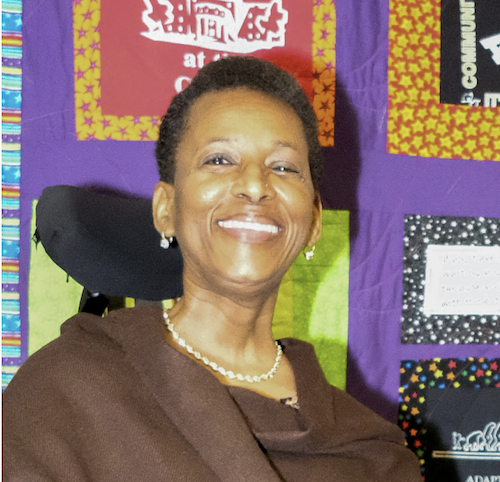Expert Update: Impact of Waitlist on Community Living
 Shelly SimmonsWhen a person without a disability reaches adulthood, a particularly exciting part of that experience is the idea of independent living and freedom. It’s the ability to choose what to do with one’s own time, the opportunity to seek meaningful employment, and the possibility of gaining the occasional moment of uninterrupted solitude. These are things that many take for granted. For individuals with disabilities, the ability to live independently or in a community can be difficult to obtain.
Shelly SimmonsWhen a person without a disability reaches adulthood, a particularly exciting part of that experience is the idea of independent living and freedom. It’s the ability to choose what to do with one’s own time, the opportunity to seek meaningful employment, and the possibility of gaining the occasional moment of uninterrupted solitude. These are things that many take for granted. For individuals with disabilities, the ability to live independently or in a community can be difficult to obtain.
Shelly Simmons, Executive Director for the Statewide Independent Living Council of Georgia (SILC GA), is committed to ensuring that individuals with disabilities have fair opportunities for independent living. Simmons began her career in her home state of California, where she worked for California’s rehabilitation agency after being inspired to take action when she sought resources for her own disability. She eventually moved to Georgia, where she found SILC GA and has served in her position since 2017.
SILC GA’s main responsibility is to develop and maintain guidelines for state legislators and other key stakeholders who influence policy that impacts independent living for people across all types of disabilities.
Additionally, the organization works with centers for independent living (CILs) to ensure people with disabilities have what they need to live independently. According to Simmons, one of the biggest barriers that individuals experience when applying for independent living waivers is the ever-growing waitlist.
“It’s unfortunate to see the increase in people waiting for services or waiting for a waiver in order to live independently within a community,” said Simmons, “I still believe it’s much cheaper for individuals to live in a community than to live in institutions or nursing facilities. People want to be out and living independently.”
For the State of Georgia Independent Care Waiver Program (ICWP), there are 238 waiting to receive services; for the New Option Waiver and Comprehensive Support Waiver Program (NOW/COMP), there are over 7,000 individuals on the waitlist. It can be very hard for individuals with disabilities to navigate the process to live independently, especially with such long wait times. Yet, according to Simmons, it is highly desirable and beneficial to those interested in making the transition.
“Having opportunities for independent living is significant for people with disabilities, because it both ensures that they have the necessary support systems and resources for their specific needs while giving them the autonomy to live in their own home or with their families,” Simmons said. “It’s also a great opportunity for people to seek employment. Living independently makes for happier individuals. Everybody has a right to live the way they see fit, whether they want to work or just go sit up at the park.”